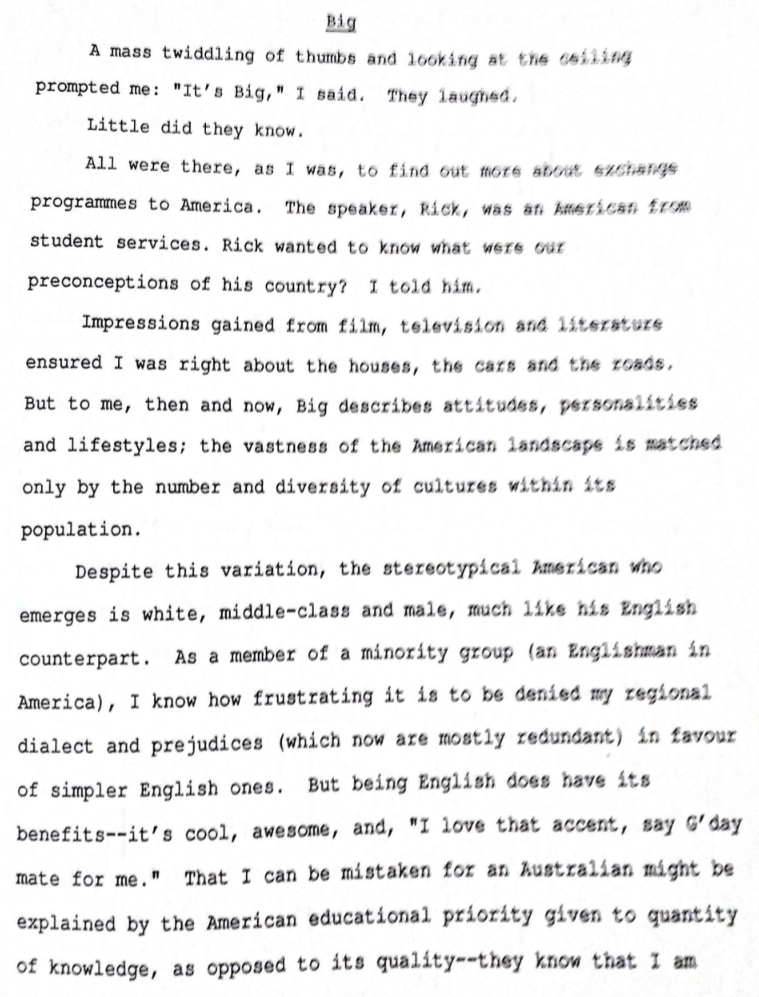Big (in America)
A mass twiddling of thumbs and looking at the ceiling prompted me: “It’s Big,” I said. They laughed.
Little did they know.
All were there, as I was, to find out more about exchange programmes to America. The speaker, Rick, was an American from student services. Rick wanted to know what were our preconceptions of his country? I told him.
Impressions gained from film, television and literature ensured I was right about the houses, the cars and the roads. But to me, then and now, Big describes attitudes, personalities and lifestyles; the vastness of the American landscape is matched only by the number and diversity of cultures within its population.
Despite this variation, the stereotypical American who emerges is white, middle-class and male, much like his English counterpart. As a member of a minority group (an Englishman in America), I know how frustrating it is to be denied my regional dialect and prejudices (which now are mostly redundant) in favour of simpler English ones. But being English does have its benefits–it’s cool, awesome, and, “I love that accent, say G’day mate for me.” That I can be mistaken for an Australian might be explained by the American educational priority given to quantity of knowledge, as opposed to its quality–they know that I am foreign, but not from which hemisphere I come–but more likely by the success of Paul Hogan’s “Crocodile Dundee.”
A similar set of values seems to determine television standards, although some shows are so bad they require compulsive viewing: Examples are breakfast time chat with local serial-killers, and the macho violence of American Gladiators. American comedy, however, has always been intelligently written (Taxi, Cheers, Moonlighting and Cosby), in spite of some of its moralizing content. English comedy is appreciated, albeit somewhat indiscriminately; Benny Hill is not the same thing as Monty Python.
National character undoubtedly is shaped by a country’s history and environment. America’s history, compared with England’s, is short. While the two countries have experienced both hardship and prosperity, the continued arrival of immigrants has maintained Americans' sense of hope for the future, and the unrelenting effects of nature have created a need for organization (with which Americans now seem obsessed). By contrast, the stability of the English way of life has led to cynicism: Nothing will change. People are content, perhaps too much so, to muddle through their lives.
Coming to America has helped me to see both countries in more favourable lights. When the time comes, I will be sorry to leave, but glad to be going home.

